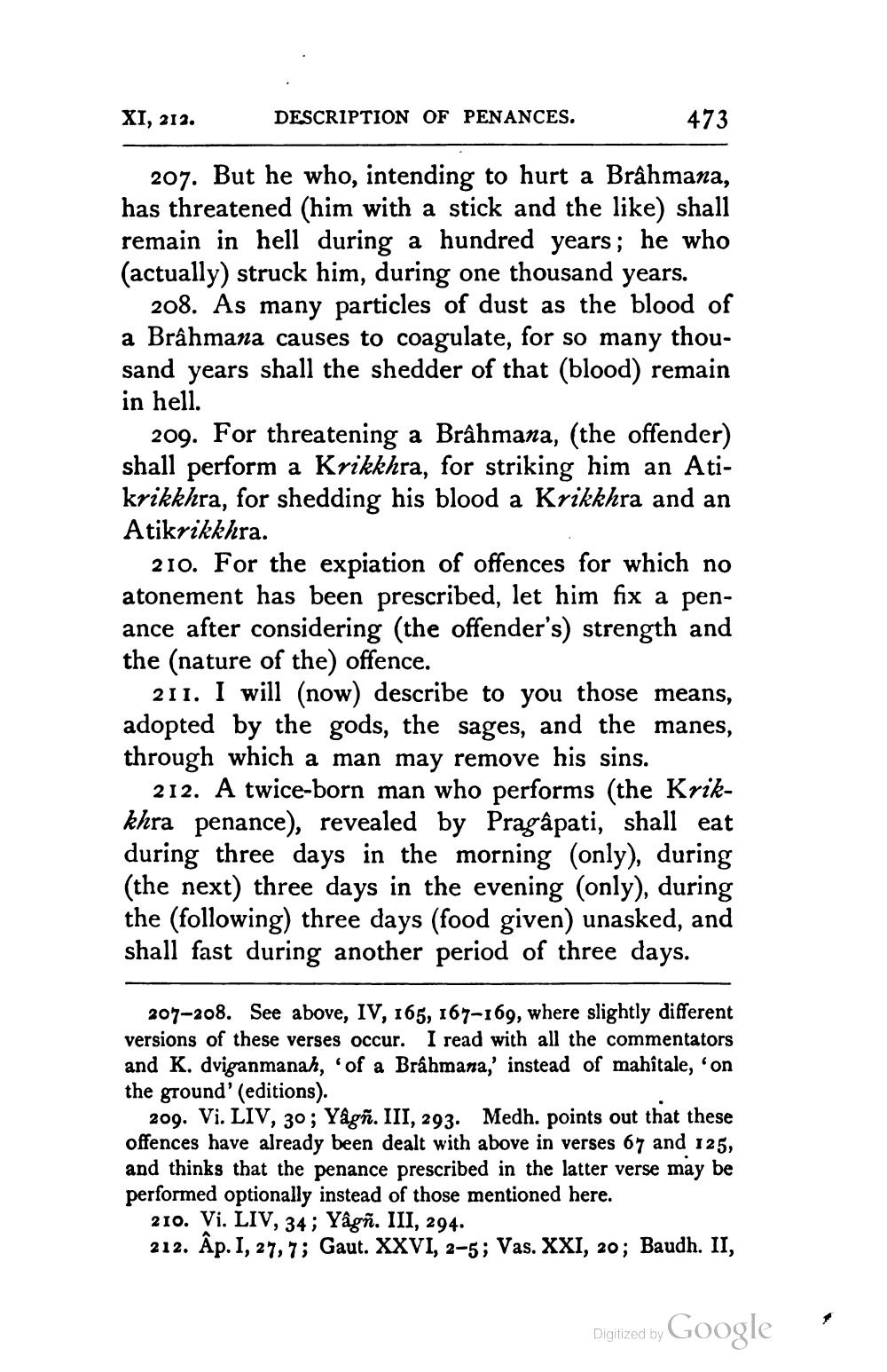________________
XI, 213.
DESCRIPTION OF PENANCES.
473
207. But he who, intending to hurt a Brâhmana, has threatened (him with a stick and the like) shall remain in hell during a hundred years; he who (actually) struck him, during one thousand years.
208. As many particles of dust as the blood of a Brâhmana causes to coagulate, for so many thousand years shall the shedder of that (blood) remain in hell.
209. For threatening a Brâhmana, (the offender) shall perform a Krikkhra, for striking him an Atikrikkhra, for shedding his blood a Krikkhra and an Atikrikkhra.
210. For the expiation of offences for which no atonement has been prescribed, let him fix a penance after considering (the offender's) strength and the (nature of the) offence.
211. I will (now) describe to you those means, adopted by the gods, the sages, and the manes, through which a man may remove his sins.
212. A twice-born man who performs (the Krikkhra penance), revealed by Pragâpati, shall eat during three days in the morning (only), during (the next) three days in the evening (only), during the (following) three days (food given) unasked, and shall fast during another period of three days.
207-208. See above, IV, 165, 167-169, where slightly different versions of these verses occur. I read with all the commentators and K. dviganmanah, of a Brahmana,' instead of mahitale, 'on the ground' (editions).
209. Vi. LIV, 30; Yagñ. III, 293. Medh. points out that these offences have already been dealt with above in verses 67 and 125, and thinks that the penance prescribed in the latter verse may be performed optionally instead of those mentioned here.
210. Vi. LIV, 34; Yâgñ. III, 294. 212. Ap. I, 27,7; Gaut. XXVI, 2-5; Vas. XXI, 20; Baudh. II,
Digitized by
Digitized by Google




